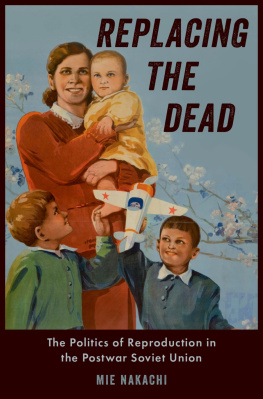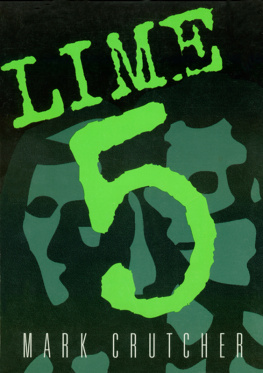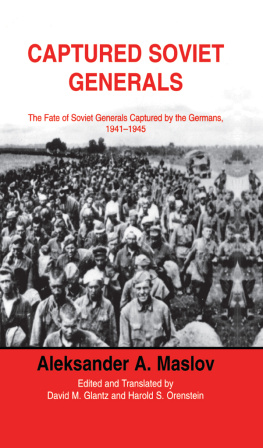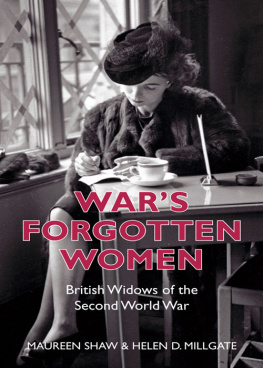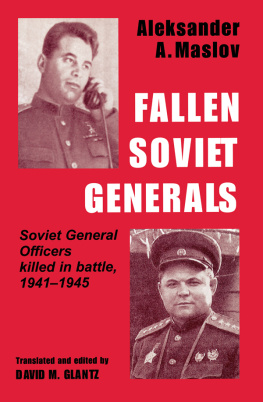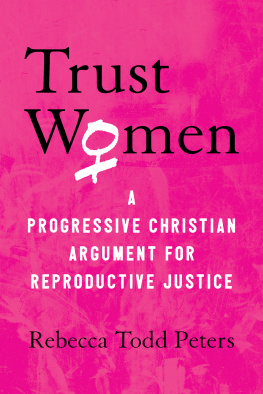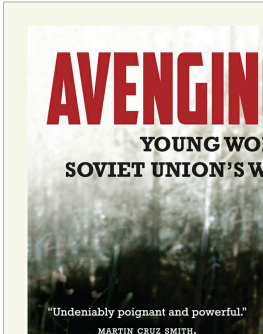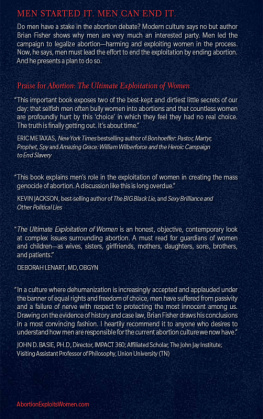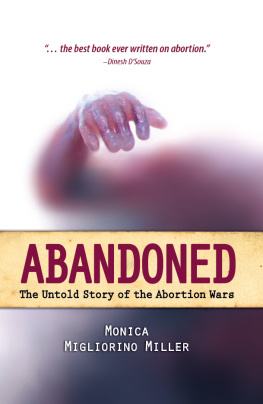Replacing the Dead

Oxford University Press is a department of the University of Oxford. It furthers the Universitys objective of excellence in research, scholarship, and education by publishing worldwide. Oxford is a registered trade mark of Oxford University Press in the UK and certain other countries.
Published in the United States of America by Oxford University Press
198 Madison Avenue, New York, NY 10016, United States of America.
Oxford University Press 2021
All rights reserved. No part of this publication may be reproduced, stored in a retrieval system, or transmitted, in any form or by any means, without the prior permission in writing of Oxford University Press, or as expressly permitted by law, by license, or under terms agreed with the appropriate reproduction rights organization. Inquiries concerning reproduction outside the scope of the above should be sent to the Rights Department, Oxford University Press, at the address above.
You must not circulate this work in any other form and you must impose this same condition on any acquirer.
Library of Congress Cataloging-in-Publication Data
Names: Nakachi, Mie, author.
Title: Replacing the dead : the politics of reproduction in
the postwar Soviet Union / Mie Nakachi.
Description: New York, NY : Oxford University Press, [2021] |
Includes bibliographical references and index.
Identifiers: LCCN 2020026364 (print) | LCCN 2020026365 (ebook) |
ISBN 9780190635138 (hardback ; alk. paper) | ISBN 9780190635152 (epub) | ISBN 9780190635169
Subjects: LCSH: AbortionSoviet Union. | Reproductive rightsSoviet Union. |
Womens rightsSoviet Union. | WomenSoviet UnionSocial conditions.
Classification: LCC HQ767.5.S65 N35 2021 (print) | LCC HQ767.5.S65 (ebook) |
DDC 362.1988/800947dc23
LC record available at https://lccn.loc.gov/2020026364
LC ebook record available at https://lccn.loc.gov/2020026365
DOI: 10.1093/oso/9780190635138.001.0001
For my family
Contents
Writing this book was a long journey. Without generous and persistent support and encouragement from many individuals and institutions, this project would have never been completed. First, I thank my interviewees who invited me to their homes and told me memories of postwar family life, including intimate episodes from the most difficult moments of their reproductive lives. These women inspired this book.
The project began as a dissertation at the University of Chicago. I would like to express my gratitude to Sheila Fitzpatrick who guided me at every step, always generously shared her knowledge, and inculcated in me her love for archival research. Her prolific work and diverse interests have been a great example and inspiration. David Ransel made me aware of the importance of the language of rights, which became a major theme of this book. Susan Gal introduced me to gender analysis of reproduction and politics under socialism. The late Richard Hellie taught me the importance of statistics in analyzing history.
I had many opportunities to present versions of various parts of this book and benefited from comments, guidance, and advice. Particularly I would like to thank the participants of the Chicago Russian History Workshop, the Berkeley Kruzhok, the Historians Seminar at Harvards Davis Center, Seminar at the Ukrainian Research Institute at Harvard University, the Russian History Seminar of Washington, DC, and the Shiokawa Seminar at Tokyo University. I am especially grateful to my hosts at these lively exchanges: the late Reggie Zelnik, Yuri Slezkine, Terry Martin, Catherine Evtuhov, Michael David-Fox, and Nobuaki Shiokawa.
Many individuals offered comments, guidance, and support. I can mention only a few here. Mark Edele has been a generous comrade and best critic, who commented on the entire manuscript. Charles Hachten shared a key set of archival documents with me. Chris Burton guided me through the Ministry of Health archive. Alan Barenberg, Ed Cohn, Brian LaPierre, and Ben Zajicek provided insightful comments on earlier versions of chapters. Their company brightened the otherwise lonely process of research and writing. Alain Blum gave me a lecture on the history of Soviet . Tim Colton, Gzergorz Ekiert, and Liz Tarlow at the Davis Center and Lubomyr Hajda of the Ukrainian Research Institute welcomed me to Harvard as a postdoctoral fellow and provided me with many chances to present my work. Yasuhiro Matsui invited me to the group of Japanese historians working on social history of the Soviet Union. T. A. Listova helped me arrange oral interviews with doctors in Moscow.
Paula Michaels read the entire manuscript and strongly encouraged me to consider global perspectives. Michele Rivkin-Fish also took time to read the entire manuscript and provided me with detailed and expert comments. This book improved greatly because of their critical comments.
The research for this book was funded by the University of Chicago Overseas Research Grant, the Matsushita International Research Fellowship, the Mellon-Fitzpatrick Field Research Fellowship, and the Suzukawa Fellowship. The Robert C. Tucker and Stephen F. Cohen Dissertation Award of the Association for Slavic, East European, and Eurasian Studies provided me with a grant to turn my dissertation into this book.
My appreciation goes to archivists of Russian federal and local archives. Their dedication and warmth made research efficient and pleasant. I thank the members of Slavic-Eurasian Research Center of Hokkaido University for their support of my research. Hokusei Gakuen University supported completion of this book and publication. I thank Susan Ferber, my editor at Oxford University Press, for her patience, generosity, and professionalism. All mistakes found in this book are mine.
My friends helped me in various ways. Long friendship with Varya made my trips to Moscow always a homecoming. She made her extensive social network available to my interview project. I deeply regret that she did not live to see this book before her untimely death. Zhenya also helped organize interviews. Irina, Karlene, Kirsten, Ayako, Noriko, and Yumiko always welcomed me whenever I had a chance to travel to their homes around the globe.
I dedicate this book to my family. Without the enduring support of my parents, Masami and Toshio, I would never have been able to continue studies and research. Miho, Yutaka, and Yu always made sure that I didnt miss out on important and fun family events, even when I had to keep writing. Akira always brought me the greatest joy throughout this journey. David read the whole manuscript and insisted that these womens stories were too important not to be published. Without his loving support through a nuclear crisis, great flood, earthquake, and now pandemic, this book would have never been finished.
Soviet Organizations appearing in this book
All-Union Central Council of Trade Unions (VTsSPS) the head of trade unions in the Soviet Union, tasked with protecting women as workers
Communist Party of the Soviet Union (CPSU) Ruling party between 1917 and 1991 dominating all government decision-making bodies
Gosplan the State Planning Committee
Komsomol Communist Youth League
MinFin Ministry of Finance. Narkomfin before 1946
MIu Ministry of Justice. NKIu before 1946
MVD Ministry of Internal Affairs, predecessor of the KGB. NKVD before 1946
MZ Ministry of Health. NKZ before 1946

